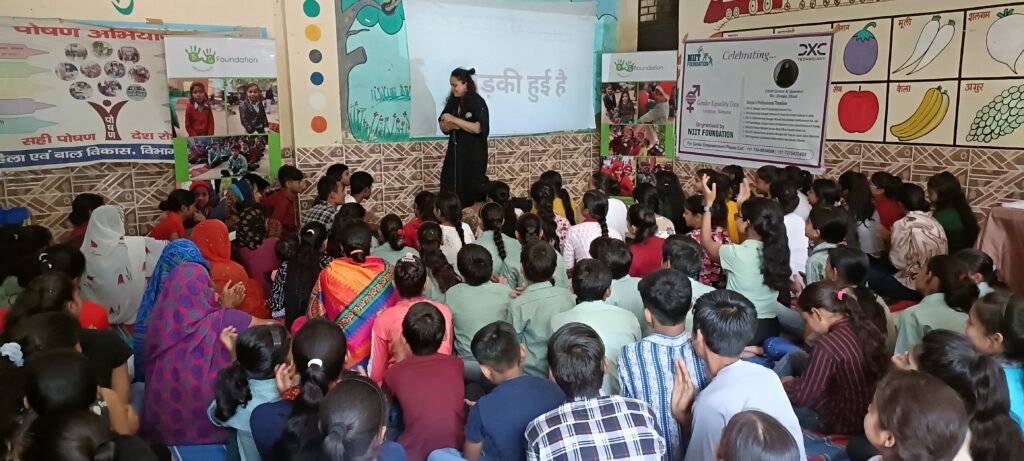
Building Confidence and Resilience: Empowering Disadvantaged Youth for a Brighter Future
Key Takeaways
- Confidence and resilience are crucial for the success of disadvantaged youth
- Strategies for building confidence in disadvantaged youth include positive reinforcement and setting achievable goals
- Fostering resilience in disadvantaged youth involves teaching coping skills and providing support systems
- Mentorship and support systems play a vital role in building confidence and resilience in disadvantaged youth
- Community initiatives and programs are essential for creating opportunities for growth and development in disadvantaged youth
Confidence and resilience are essential qualities for success in life, and this is especially true for disadvantaged youth who face numerous challenges and obstacles on a daily basis. Confidence allows young people to believe in themselves and their abilities, while resilience enables them to bounce back from setbacks and adversity. For disadvantaged youth, who may have experienced trauma, poverty, or discrimination, building confidence and resilience is crucial for their overall well-being and future success. Without these qualities, they may struggle to navigate the challenges they face and may be more susceptible to negative influences and outcomes.
Furthermore, confidence and resilience are not only important for individual well-being, but they also play a significant role in the broader community. When young people are confident and resilient, they are more likely to contribute positively to society, pursue education and employment opportunities, and become role models for others in similar circumstances. Therefore, it is essential to recognize the importance of building confidence and resilience in disadvantaged youth and to provide them with the necessary support and resources to develop these qualities.
Overcoming Adversity: Strategies for Building Confidence in Disadvantaged Youth
There are various strategies that can be employed to help disadvantaged youth build confidence and self-esteem. One effective approach is to provide them with opportunities to succeed and excel in different areas of their lives. This could involve offering mentorship programs, extracurricular activities, or vocational training that allow young people to discover their strengths and talents. By experiencing success and recognition, they can begin to develop a sense of confidence in their abilities and potential.
Another strategy for building confidence in disadvantaged youth is to create a supportive and nurturing environment where they feel valued and respected. This could be achieved through positive reinforcement, encouragement, and constructive feedback from mentors, teachers, and community members. When young people feel that they are accepted and appreciated for who they are, they are more likely to develop a positive self-image and belief in their capabilities.
Fostering Resilience in Disadvantaged Youth: Tools and Techniques for Empowerment
Resilience is the ability to adapt and bounce back from adversity, and it is a quality that can be cultivated in disadvantaged youth through various tools and techniques. One effective approach is to teach young people problem-solving skills and coping mechanisms that enable them to navigate challenges and setbacks. This could involve providing them with training in stress management, conflict resolution, and emotional regulation, as well as offering them opportunities to practice these skills in real-life situations.
Furthermore, fostering resilience in disadvantaged youth can also involve helping them develop a sense of purpose and meaning in their lives. This could be achieved through mentorship programs, volunteer opportunities, or community service projects that allow young people to make a positive impact on others. When they feel that they are contributing to something greater than themselves, they are more likely to develop a sense of resilience and determination to overcome obstacles.
The Role of Mentorship and Support Systems in Building Confidence and Resilience
Mentorship and support systems play a crucial role in building confidence and resilience in disadvantaged youth. Mentors can provide young people with guidance, encouragement, and positive role modeling that help them develop a sense of self-worth and belief in their abilities. By having someone who believes in them and supports their goals, young people are more likely to overcome self-doubt and develop the confidence to pursue their dreams.
In addition to mentorship, creating strong support systems for disadvantaged youth is essential for fostering resilience. This could involve providing access to mental health services, counseling, or peer support groups that offer young people a safe space to express their feelings and receive assistance when facing challenges. When they have a network of support around them, they are better equipped to cope with adversity and develop the resilience needed to thrive.
Empowering Disadvantaged Youth: Creating Opportunities for Growth and Development
Empowering disadvantaged youth involves creating opportunities for their growth and development in various areas of their lives. This could include providing access to quality education, vocational training, employment opportunities, and leadership development programs that enable young people to build skills and knowledge that are essential for their future success. By equipping them with the tools they need to thrive, they are more likely to develop confidence in their abilities and resilience in the face of challenges.
Furthermore, empowering disadvantaged youth also involves promoting self-advocacy and agency in decision-making processes that affect their lives. This could involve involving them in community initiatives, advocacy campaigns, or policy-making discussions that allow them to have a voice and influence over issues that impact them directly. When young people feel empowered to make a difference in their own lives and communities, they are more likely to develop a sense of confidence and resilience that propels them towards a brighter future.
Building a Brighter Future: How Confidence and Resilience Impact the Success of Disadvantaged Youth
The impact of confidence and resilience on the success of disadvantaged youth cannot be overstated. When young people possess these qualities, they are better equipped to overcome obstacles, pursue opportunities, and achieve their goals. They are more likely to excel academically, pursue higher education or vocational training, secure employment, and become positive contributors to society. Furthermore, confidence and resilience enable young people to navigate the complexities of adulthood, build healthy relationships, and make informed decisions about their future.
On the other hand, when disadvantaged youth lack confidence and resilience, they may struggle to overcome the challenges they face and may be more susceptible to negative outcomes such as substance abuse, delinquency, or unemployment. Therefore, it is essential to recognize the impact of these qualities on the success of young people from disadvantaged backgrounds and to provide them with the necessary support and resources to develop them.



